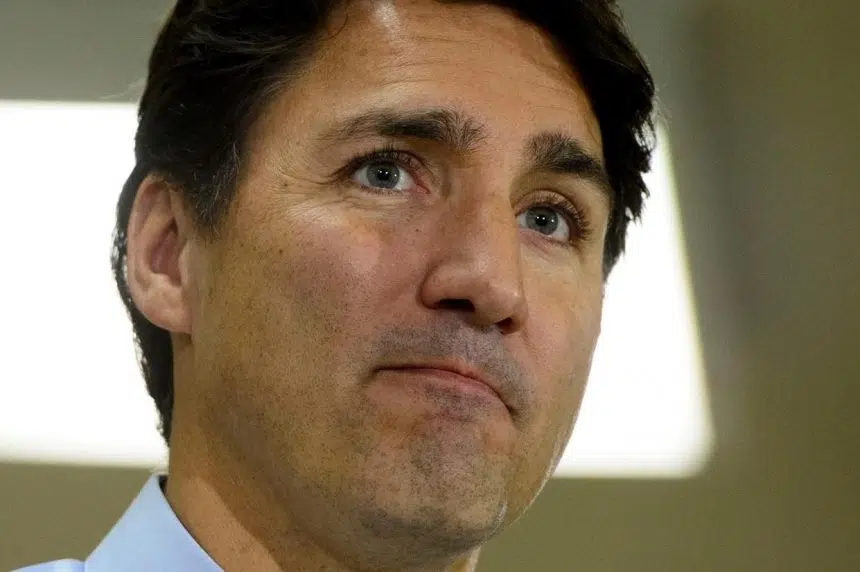Prime Minister Justin Trudeau lifted the Emergencies Act on Wednesday, just two days after its use was supported in a vote in the House of Commons and nine days after it was invoked.
“We were very clear that the use of the Emergencies Act would be limited in time,” Trudeau said during a media conference. “When we invoked it, it would be in place for up to 30 days but we said that we would lift it as soon as possible.
“We’ve held updates and briefs with ministers and officials every day — often multiple times a day — and today after careful consideration, we’re ready to confirm that the situation is no longer an emergency. Therefore, the federal government will be ending the use of the Emergencies Act.
“We are confident that existing laws and bylaws are now sufficient to keep people safe.”
The government invoked the act a week ago Monday, giving police sweeping powers to arrest or remove protesters who were blockading the streets of Ottawa as well as border crossings across the country.
The demonstrations sprang up out of the truckers’ convoy to Ottawa to protest cross-border COVID-19 vaccination mandates.
It was the first time since the act was passed in 1988 that it had been used.
On Wednesday, Trudeau said invoking the act was “the responsible and necessary thing to do” to deal with what he called “dangerous and unlawful activities.”
“Public safety as well as jobs and the economy were at risk,” Trudeau said. “People were being harassed, small businesses were closing, factories were shutting down and trade was halted at our borders.
“Here in Ottawa and in other places in the country, there is evidence of individuals wanting to undermine and even harm Canada’s democracy. Their participation was believed to increase the potential for unrest and violence.
“We worked closely to support provinces and municipalities to get the situation under control, but as the weeks went by, it became obvious that provincial and local authorities needed more tools in order to enforce the law and protect Canadians — and that’s exactly what the Emergencies Act provided to them.”
Trudeau noted the words of Ottawa’s interim police chief Steve Bell who, during the operation to clear downtown streets, said invoking the Emergencies Act was the turning point in allowing police to end the protest.
That prompted the federal government to consider lifting the act.
“Over the weekend, we observed police activity here in Ottawa and elsewhere and we saw that they had succeeded in restoring order and respect for law,” Trudeau said.
“Since Monday, at every step, we assessed the emergency and threats that existed in the country and this morning we concluded in consultation with the various police services and security experts that the tools that our various police forces had in normal times were sufficient to continue to maintain law and order in the country once it had been restored.”
Protesters are still gathered just outside Ottawa and in other cities, but Trudeau said the government is convinced the police now have the ability to deal with future demonstrations.
Trudeau said a joint committee of parliamentarians will be struck to review the declaration of emergency and, within 60 days, an inquiry will be held into the circumstances that led to the act being invoked.
Saskatchewan response
Premier Scott Moe said in a statement the federal government did the right thing by revoking the act “because it should not have been invoked in the first place.”
“Law enforcement agencies already had all the tools they needed to stop illegal activity, and we are thankful for the men and women in uniform who work to keep Canadians safe every day,” Moe wrote.
“Now, with a clear end to the use of the Emergencies Act, it is time for a clear end to (COVID) mandates and restrictions. It is past time for the Trudeau government to detail a return to normal for all Canadians.”
Before Trudeau revoked the act, Saskatchewan’s NDP came out as skeptical.
Deputy Leader Nicole Sarauer said the courts will decide whether the act was necessary at the time, but she said it has already done what it was meant to do.
“As the Emergencies Act passes through our Houses of Parliament it’s fair to ask if those expanded powers are still necessary,” said Sarauer.
She didn’t equivocate when she said the act wasn’t needed in Saskatchewan.
When it came to the court challenge the provincial government was mulling over, Sarauer said while the NDP didn’t think it was a bad idea, Moe had more important things to focus on.
“We’re in a situation where people in Saskatchewan are struggling to make ends meet and hospitals can’t open because there’s not enough staff. The premier should be spending his time focusing on these sort of matters and allow the court challenge to progress as needed,” said Sarauer.
Saurer said certain leaders, Moe included, need to take a good look in the mirror when it comes to their role in fostering political divisions and what she called the current crisis.
“It is our job to unify those we were elected to serve and to dial down the current temperature of political discourse,” said Sarauer, who pointed specifically to Moe not denouncing the protests early on.
The deputy NDP leader said the party is calling on Moe to shelve the political rhetoric and help dial things down.











